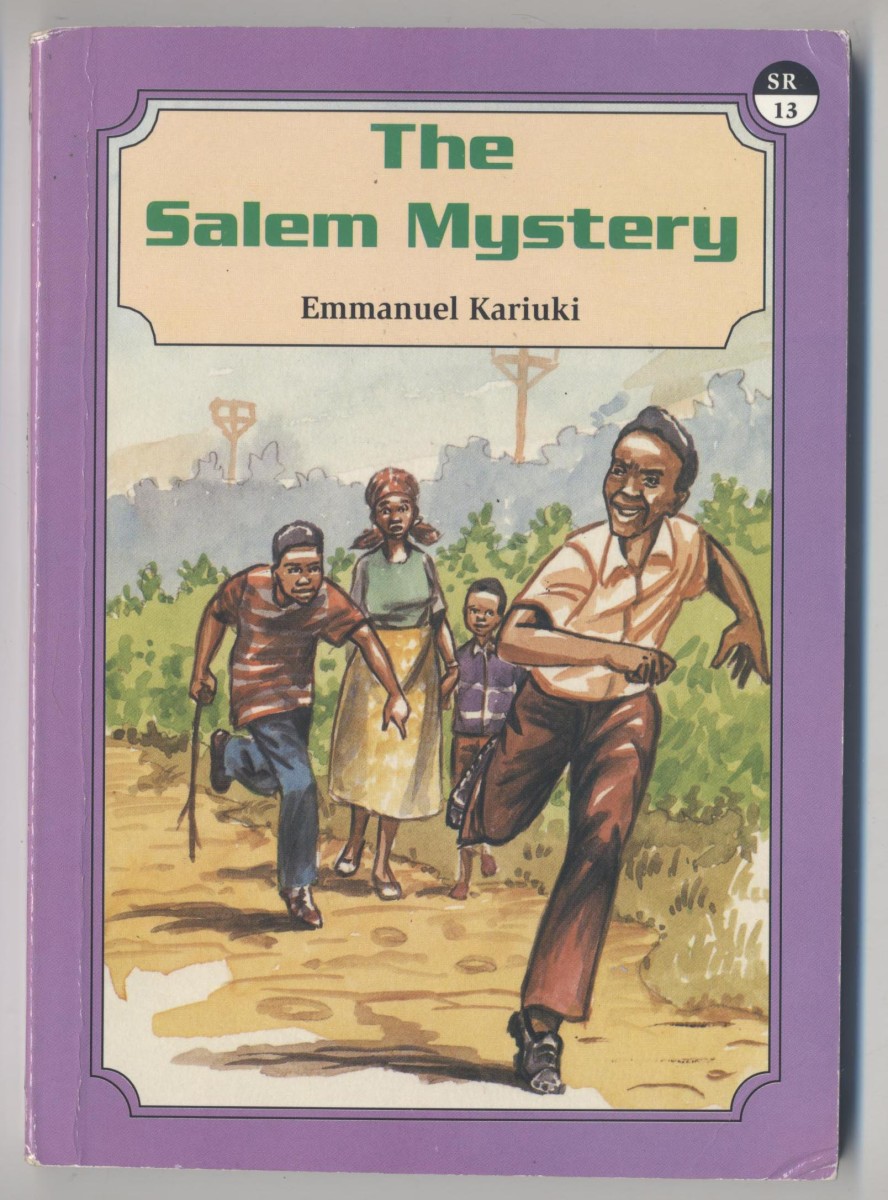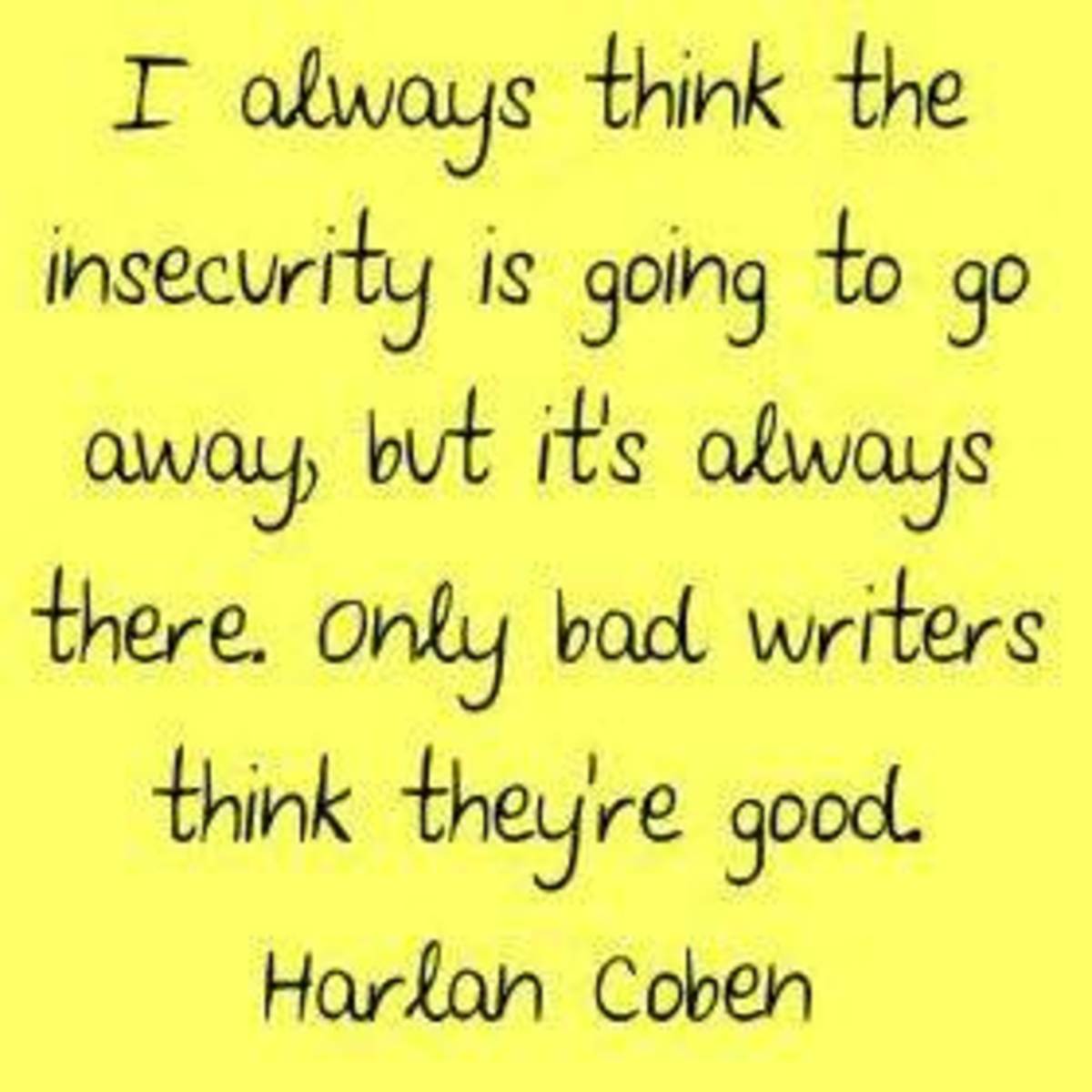So you want to be a "Published Author" -- facts about the publishing world

The Dream
So you’ve written your first book and it’s great – all your friends and relatives say so.
You haven’t worried about professional editing, because it’s the ideas, the content that’s important, and a few grammatical errors, typos and such don’t count. That’s all editing’s about right? Your brilliance will shine through despite a few unimportant little errors – things only of concern to an anal sort of person. Editing and re-writes, who needs 'em.
As soon as you finish researching how to write a query letter and write one, you’ll land an agent, for sure. Such a work of genius is bound to be recognized by anyone with half a brain and the instincts to match. In fact, let’s write our soon-to-be-agent a letter informing her/him of his/her good luck – the next John Grisham, the next Nora Roberts is here, offering them the rainmaker of the year. An agent is a done deal.
Armed with such a literary gem as yours, that agent will have no trouble selling any of the major publishing houses on your project – and your name and photograph will star proudly on the back of dust jackets in every major book store in the country. The publisher will lavish all kinds of funds for promotion of your golden words, the ‘big book’ of the day; your own publicist will send out the news releases, the advance copies to the reviewers, invitations to the press parties, the print ads, the tv commercials ….
Your book will hit all the major best-seller lists, and your name will become a household term.
And best of all, you’ll be rich. No longer will you worry about the credit card bills – you’ll pay ‘em all off with your advance, and still have enough to take the family to Disneyworld. Once those royalty checks start pouring in, life will be beautiful. Sit back and watch the bank accounts grow.
Make a list of all the cities you want to visit on your book tour, that whirlwind of four star hotels and five star restaurants, book signings where they line up around the block to get your autograph on the front page of their copy of your book, radio interviews; TV talk shows – Good Morning America, here I come. Jay Leno and Conan O’Brien can fight over you. Did someone mention Oprah?
Ahhh! Ain’t a rich fantasy life great?
Okay – time to wake up now.
Agents and finding an agent
The original request I'm to answer in this hub is can I suggest a source to provide assistance in securing the services of an agent -- in particular, considering the number of scams out there and the one I wrote about in Avoid This Agency Scam -- WLWriter's Literary Agency. linked below -- a place where trustworthy information on agents and agencies is found.
The answer is YES! I highly recommend Preditors and Editors, a priceless source and registry of agents, lawyers, editors, and publishers. The link is given below.
There is no shortage of information out there on how to write a query letter, how to approach an agent, so I won't go into all of that again. I have linked those sites on these subjects I consider useful.
But please keep in mind: an agent may receive 1,000 to 1,400 queries a month and may only have openings in their agency for one or two new authors. No matter how clever your query letter, the odds are long. Can you spell reality?
What does work? Constant work, developing a readership in other venues, social networking (and no one is beneath your notice -- you never know) and just generally building up a reputation no matter how small.
- Preditors and Editors -- a registry of Literary Agents
Preditors and Editors, and invaluable source of information for those seeking a literary agent. - AuthorAdvance | The Writers\' Community
AuthorAdvance is a free social network for writers with agents, markets, publishers, resources, services, products and submission tracking tools. - Warning to Writers -- Avoid this agency scam -- Writers' Literary Agency
Why did I write this? Consider it a public service announcement. This agency, WLWriter's Literary Agency is a scam.
About editing and editors
Contrary to the buzz I’ve picked up here on the forums and a few questions and answers on this subject: What is more important substance or style? Is the content not more important than correct punctuation and grammar? There have been many such debates here on hubpages. A couple of times I’ve thrown in my two-bits worth, but was shouted down. Intellect wins over form it seems – at least according to the unpublished (and often unreadable) dabblers here.
Okay folks – listen up. As a professional writer with a bit of a track record, lots of friends in the industry and experience – I’m going to tell you the truth – any work you submit to an agent or an editor had better have been edited, rewritten, edited again and rewritten until it is as polished as it can be. No agent, no editor is looking for some rough gem to refine.
I am going to say this in the plainest language I can. Your work needs editing – not just for punctuation and grammar, but for content and character continuity, for plot defects and for story line lapses. You’re serious about being a writer – then find an editor!!
What can you expect an edit of a novel length manuscript to cost you? -- $1,200 to $2,500. Is it worth it? Yes. Do I personally pay for editing services? -- Yes! Yes! and Yes! And it is worth every penny.
If you can't afford it, there are many writer's coaches who will work with new writers helping them to attain a level of professionalism. Seek them out. You may contact me for assistance if you wish -- and when I am able, I will endeavor to direct you to the right source.
- P&E: Editing Services
Preditors and editors maintains a registry of professional editing, copy-editing, writers' services organizations. This is a good place to begin.
Reality
Let’s say that against the odds, your manuscript is slated for success – on your two hundred and thirtieth query, you find an agent who recognizes this diamond-in-the-rough and wants to represent your work. And against even steeper odds, after some judicous editing, and pruning, she sells your book to a publisher.
Now the riches pour in – right?
Wrong.
In fact, the percentage of authors who earn their livings solely from their writing careers --- much less make huge amounts of money at it --- is exceedingly small.
Rather, the hard reality is that the vast majority of authors cannot earn a subsistence income. Lucky are those earning even a comfortable --- much less a luxurious --- living from their writing careers, and, unless they have access to other sources of funding (such as a working spouse, a trust fund, investments income), are frequently compelled to take other jobs to put a roof over their heads, food on the table and pay off the bills. Hence – the ever popular line: Don’t quit your day job.
The reality of self-employment
All authors are self-employed, and as such, they are subject to the same difficulties every self-employed person must face: no guarantee of either a steady income or work, no company-provided life insurance and health benefits, and no paid vacations, sick days, or maternity leave.
So, just like all other self-employed people, authors must assume all responsibility for providing all these things for themselves, as well as paying self-employment taxes (because self-employed persons do not have employers contributing to social security, they must pay a higher amount into social security than non-self-employed people do).
All authors are freelance writers. They conduct business by signing contracts with publishers for the production of one or more books, for which they agree to accept as payment for writing and delivering the book(s) either a percentage (royalties) of the profits from the book's sales or books' eventual sales, or else a straight flat fee (work for hire) for the book(s).
What are royalties?
When a contract is negotiated between an author and a publisher, the author is usually paid an advance -- an advance against royalties yet to be earned, and only once that advance amount is recouped through actual sales (net of returns) will any further royalties be paid.
An author signing a first contract can expect to receive an advance of anywhere from $1,000 to $10,000, on average, per book. Naturally, there are exceptions but it would be unwise to base your financial plans on being that rare, unknown author who garners hundreds of thousands (or millions) in advances. No, let’s attempt to stay within the bounds of reality; the author receives a $10,000 advance, for a single book. That means the author would need to earn $10,000 in royalties from the sales of that book before receiving any additional income from it.
How are royalties calculated?
In general practice, hardcover books pay standard royalty rates of 10%, 12%, and 15% of the cover price --- 10% on the first 250,000 copies sold, 12% on the next 250,001 to 500,000 copies sold, and 15% on anything sold above 500,000 copies. So if an author's hardcover book has a cover price of $25.00, then the author will earn a $2.50 royalty on the first 250,000 copies.
This means that if 10,000 copies of the author's book are the total sold, then the author will earn only $25,000. You’re thinking, not important, most people buy paperback. Yes, the prices for paperback are less, therefore the author earns less per book but the paperback sells in higher volumes thereby earning the author more.
But -- the standard royalty rates for paperback books vary from a low of 1% to a high of 10%, with the average royalty rate falling at 6%. So if an author's paperback book has a cover price of $6.50, then at a 6% royalty rate, the author will earn only a $.39 royalty on every copy sold. Therefore, if he sells another 10,000 copies in paperback format, he earns a whopping $3,900 in royalties.
But there’s something else entering the equation – returns. Books are one of the few commodities on the market sold as “guaranteed” sales. This means that the retailer accepts shipment of the book knowing if it doesn’t sell, he can send it back. So a publisher may print and ship a million copies of your book (but 15-20,000 is more likely) and find that 999,999 will eventually be returned as unsold. And guess what? The publisher expects not to pay royalties on books returned, and will deduct those amounts from royalties outstanding.
Here’s a true-to-life example
For a mass-market paperback book with a minimum first printing of 25,000 copies, an average return rate of 50%, an average $6.50 cover price, and an average 6% royalty rate, an author would earn only $4,875 on the sales of that book --- and 15% ($731.25) of that sum would go directly to the author's agent, leaving the author with a gross (before taxes) profit of $4,143.75.
If, as is not at all unusual, the author had worked all year to produce that book, then the author would have achieved an annual income of less than $5,000!
But I will sell millions, you protest.
Reality check number two
Publishing statistics
There are 17 new books published each and every hour of each and every day, meaning 148,920 books are published yearly in the U.S. This past year 2009, saw 1,879,000 books in print (currently available.)
80% of the book sales are controlled by five
conglomerates: Bertelsmann (Random House), Rupert Murdoch’s News Corp, Time
Warner, Disney and Viacom/CBS. -- Andre Schiffrin, The Business of Books in
the Washington Post -- with US sales of
$4.102 billion and worldwide sales of $5.68 billion. (2009)
- Random House: $2.1 billion worldwide
- Penguin Group: $1.3 billion
- HarperCollins: $1.1 billion
- Simon & Schuster: $690 million (est)
- AOL/Time Warner: $415 million
78% of the titles published come from the small publishing houses or self-publishers. So in other words, 78% of the book titles compete for 20% of total book sales.
But, I hear you protest, my work is so good, sure thing it will be picked up by one of the big five.
First of all, publication by one of the big conglomerates is no reflection on quality. Let’s not get confused with bigger equals better. Some of the best writing published is produced by the smaller publishing house.
Still, if you are dead set on landing that contract with one offshoot of the big five or other, let’s take a look at their statistics.
Book Printing Facts of Advance paying traditional publishers:
Most initial print runs are 5,000 copies. 4,986 was the average first press run; second printings averaged 4,776.
The first print run for a mid-list book by a larger publisher is 10-15,000 books. A larger publisher must sell 10,000 books to break even.
Your publisher is unlikely to lavish much in the way of publicity funds on a first time, unknown. Much of that work will remain your responsibility (and your expense.)
A successful fiction book sells 5,000 copies.
A successful nonfiction book sells 7,500 copies. (information from Author’s Guild – link to the right)
As we’ve already calculated, the author is unlikely to see more than a total of $4,000 (if that much.)
Well this isn’t easy street, you think, somewhat deflated, watching those riches dwindle until they become a payback of pennies per hour. I may as well self-publish at these rates. At least then I’ll earn more than .40 per unit.
Well, maybe so -- per unit you’ll make more. But how many units are you likely to sell all by yourself?
Self-publishing options:
“Createspace published 10,269 titles!” 352 titles or 3.4% had sold more than 300 copies. 1,463 or 14.3% had sold more than 200 copies. The average per-publication sale number of a Createspace title is about 30 copies.
“Xlibris has paid out $1 million in royalties” (to some 9,000 authors since the company was founded in 1997 -- about $111. each. Average amount paid to Xlibris by those authors to earn their $111 in royalties -- $700.) The average sales of the 9,000 titles is 33 sales per title).
Authorhouse claims to have sold 2 million books -- their 18,500 titles listed make that 108 books/title.
“iUniverse says their titles have sold 750,000 copies” -- ie. 10,000+ titles (75 copies/title). One year later they state: Of iUnivers's 17,000 titles, 84 have sold more than 500 copies.
So, yes you will receive more income per copy, but you will also pay for printing, shipping, registration-- everything (anywhere from $200 - $5000) and publicity expenses will be 100% yours.
Explain to me again how this is a better deal.
So, are you saying it's not worth it to write and sell your work?
No -- I'm asking you enter into this business with a sense of reality. Maybe -- just maybe, you will be one of the few whose work "catches on" and you'll find your name up there as one of the "hot" ones -- and you can then write your own ticket (more or less.)
But don't go planning your life, in particular your financial life, around that possibility. Possibly you'll win the lottery, too.
I recently went three rounds with a client who had not yet written anything beyond an introduction and wanted me to review and edit a query letter. This client had never written anything before, certainly never published and required strong editing of anything he did produce -- but suddenly he wanted to write a proposal and "line up commitments" prior to writing the piece. I asked him why he thought an editor who receives 100+ proposals a day for projects from some pretty high-powered individuals, would suddenly take an interest on a newbie, with no credits to his name, and no track record to prove he is capable of doing the work and no ... well you get the idea.
In truth, this client has financial woes and took my encouragement as to his writing ability to mean he could buck the system and the odds and parlay an undeniable talent (but one that is far from rare) into a financial fix.
If you are entering the writing world to pay your bills -- please, find another means of support.
What I've tried to show you here is the reality that is the publishing world. This reality should remain uppermost in your mind throughout your dealings with its vagaries -- always.
Some interesting articles
- Self-Publishing and Publishing -- Reecca E.
I can almost hear you on this one, self-publishing??? Self-publishing? you? Why would you want to self-publish? I know, but hear me out, publishing and self-publishing don't need to be mutually exclusive,... - Self Publishing to do or not -- Merlin Fraser
SELF PUBLISHING. To Do or Not To Do, that is the Question. Want a single word of advice? DONT ! Least ways dont do it until after you have read some of the facts below. Then if you still want to...








